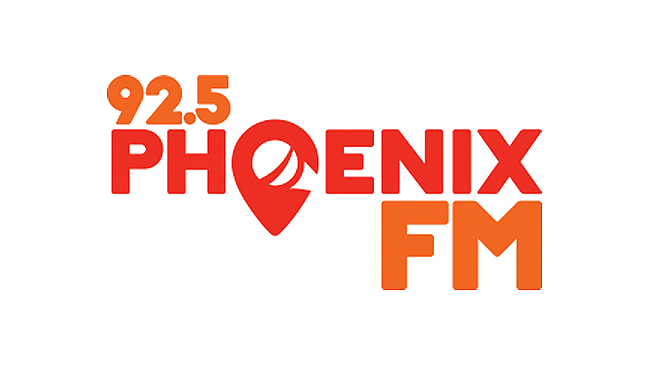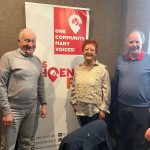To help you make an informed choice at the polling station on November 29th, 92.5 Phoenix FM will be speaking to many of the candidates from Dublin West to hear what their priorities are for the next Dáil. This series is adapted from our ‘General Election 2024’ podcast series as broadcasted on D15 Today, where you will find full-length interviews with the candidates.
Umar Al-Qadri is not only making his first bid for the Dáil in this election, but is also voting for the first time as an Irish citizen. “It’s an honour, first of all, to run for the general elections for the Dublin West constituency. This is the constituency that I have lived in from the time that I immigrated from the Netherlands to Ireland. […] I didn’t [vote in 2020] because I was not an Irish citizen at that time, so I have become, in the meantime, an Irish citizen, so I can now vote and I can also run for the elections.”
We have highlighted some of the main points raised in the interview.
On housing
Housing is the key issue heading into this election, and Al-Qadri has noticed how much house prices have increased since first moving here. “When I came to Ireland, a four-bedroom house was €1,000, €1,100. Now the same house is like €3,500 for rent. It’s crazy. People have to spend more than 35% of their income on rent, which is not acceptable.” Al-Qadri also bemoans a “lack of affordable housing”, “and when they’re being built, they’re actually taken by vulture funds. So vulture funds are coming up and grabbing all these apartments, all these housing estates.”
The outgoing government would contend that cost-rental housing is making renting more accessible and in turn affordable, but whether “cost-rental” is still synonymous with “affordable” is the question: The Irish Times reported last week that in the new O’Devaney Gardens development to the east of the Phoenix Park, a three-bed apartment costs €1,895 per month, making them the most expensive housing provided under the cost-rental scheme.
Al-Qadri shares many candidates’ aim of establishing a state construction company to tackle the housing crisis. “In this country, we have privatized every single thing, so we are actually getting builders, private builders, to build homes for the government. The government is paying for these homes and paying profits. When we have our own state-run construction company, we can build not-for-profit homes, and we can then sell them at [cost].”
The lack of construction workers to build these homes is also well established, but there have been different methods put forward as to how to address the estimated 80,000 shortfall. “We have a lot of […] International Protection applicants that are young, that are energetic, and these people are waiting in hotel rooms and accommodation centers for their asylum process to be processed, which can take years, and they are not doing anything. Now, they can work after six months if they want to, but there is no incentive. So the government needs to actually train these people, give them the skills required, so they could be employed straight away in the construction industry.”
“We will address our housing crisis, we will address the concern people have about immigration, about integration, and we will make sure that these people, when they have come to Ireland, and they have chosen Ireland, you know, for their home, that they are also contributing to Ireland. It’s not that they are here only receiving benefits.” As anyone familiar with the process of seeking employment as an International Protection applicant will tell you however, it is not as simple as filling out an application and starting work nor can they access full social benefits while waiting for a decision on their asylum application. We will explore how this proposal could actually work in practice in our article on how we can recruit construction workers coming next week.
On public transport
One issue that repeatedly comes up among Dublin 15 residents is public transport, particularly the unreliability of buses showing up and the inadequate capacity of those that do arrive at a stop. There is also the issue of poor connectivity to the rest of Dublin: despite being less than 15 minutes away by car, there is still no direct bus route to Dublin Airport, and we received confirmation this week that the latest projected launch date for the N8 orbital route is Q1 2026 after several pushbacks.
Al-Qadri says the issue is of “major concern”. “My child used to study in the city centre, and I know that from the city centre to Dublin West, the only connection there was, was really either the 39 bus or the DART. But the DART is very difficult to get on to. When I compared […] public transport in [Ireland], and particularly in Dublin West, […] with the Netherlands because I’ve come from there, I was completely shocked. […] There was no connection to the airport, for example, at that time. […] So I really think that we need to massively expand reliable and regular public transport, because that’s the major issue that we have here.”
On the cost of living
One issue that has come up repeatedly during the campaign is privatisation of public services; we can see how this has impacted the housing crisis and public transport. Al-Qadri says electricity costs are another example of stripping services of their not-for-profit mandates. “We are paying the highest rates of electricity, of energy prices, across Europe. Why are we doing that? It’s because we have privatised, outsourced energy companies, and these energy companies are having €700 million of profits in a year, while a common person who used to pay €300 maximum, like in two months, for electricity with a household of four or five members, is now paying €500. Businesses that were paying previously €1,500 are paying €5,000 now.”
Al-Qadri also has some novel solutions to address the issue of price gouging, which has become particularly prevalent following the COVID-19 pandemic and the war in Ukraine. “I think that we need in this country, a Minister of State for consumer affairs. We need to make sure that we give the Competition and Consumer Protection Commission a more stronger role. Ahe moment, they cannot impose large fines to companies if they, for example, increase the rates, prices of the products. At the moment, if you look back at three years ago, or two years ago, with €50, you could actually do a lot in Lidl and Aldi. In Lidl and Aldi, at the same time, right now, with €50, you don’t get as many products. Why is that? It’s not because of inflation, because inflation according to the Consumer Price Index is 9%, 10%, but the price increases are 30%. This is not acceptable. So we need greater control.”
On crime and public safety
Al-Qadri says another issue locally is “safer communities”: “You know, people believe that and I know that this is true. We have a lot of burglaries, a lot of vandalism, a lot of crime is increasing. In Ongar alone, we have had two murders at the same spot in front of the pizza company there. And people are concerned because there is no visibility of Gardaí. You don’t see Gardaí anymore. If you go to the Netherlands, if you go to Poland, if you go to any other European country, you will see continuous presence of the law enforcement. You don’t see that here in Ireland. We have a Blanchardstown Garda station that is covering [beyond] Blanchardstown. It’s covering all the way to Finglas. It’s covering covering a huge area with limited resources. I think one of the biggest failures of the of the government, apart from housing, is that they have decreased the funding for law enforcement, for An Garda Síochána, and this is why the the issues of crime have are really increasing. Drugs is another issue. So a lot of young people are going into drugs. This is a major concern and this needs to be tackled as well.”
There is also the issue of a lack of investment in community for young people, who have been “neglected for too long” according to Al-Qadri. ““young people have been neglected for too long. There is no youth services. “There are no services for young people to go, to engage with after school. There are disenfranchised areas here in Dublin West, which have been neglected for far too long. It’s time that we invest in the youth services in those areas, and we bring those children away from […] getting into crime. Bring them outside, engage them in some kind of sports activity, other types of activities that will be constructive and beneficial for them. Because we haven’t done so, this is why a lot of young people then go on that track. We have to stop it. The other thing also is we need to have deterrent sentences. At the moment, the courts will just give a slight slap on the wrist of an offender. We need to make sure that we send out a strong message of zero tolerance. There should be no tolerance for crime, especially when it’s violent crime.”
“I think we have to also introduce parental responsibility. You know, if the child is 13 or 14 years of age and is engaged in violent activity, violent crime, it’s not okay for the court just to say, okay, that’s fine, it’s someone who is underage and we can’t really do much about it, except giving a warning. No, parents should be responsible. Parents should hold the responsibility because as a father myself of three children, I know where my children go in the evening. They inform me. I have that atmosphere in the household. We need to make sure people have that. They should be able to have control over the children.”
You can listen back to our interview with Al-Qadri on our ‘General Election 2024’ podcast series.



